Related Research Articles

Mary Tudor was an English princess who was briefly Queen of France as the third wife of King Louis XII. Louis was more than 30 years her senior. Mary was the fifth child of Henry VII of England and Elizabeth of York, and the youngest to survive infancy.
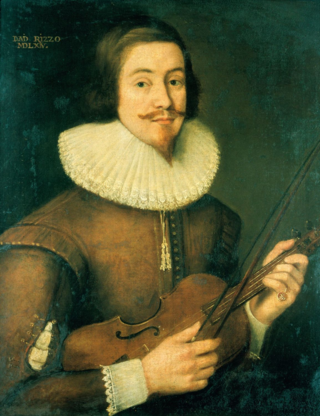
David Rizzio or Riccio was an Italian courtier, born in Pancalieri close to Turin, a descendant of an ancient and noble family still living in Piedmont, the Riccio Counts di San Paolo e Solbrito, who rose to become the private secretary of Mary, Queen of Scots. Mary's husband, Lord Darnley, is said to have been jealous of their friendship because of rumours that Rizzio had impregnated Mary, and he joined in a conspiracy of Protestant nobles to murder him, led by Patrick Ruthven, 3rd Lord Ruthven. Mary was having dinner with Rizzio and a few ladies-in-waiting when Darnley joined them, accused his wife of adultery and then had a group murder Rizzio, who was hiding behind Mary. Mary was held at gunpoint and Rizzio was stabbed numerous times. His body took 57 dagger wounds. The murder was the catalyst of the downfall of Darnley, and had serious consequences for Mary's subsequent reign.
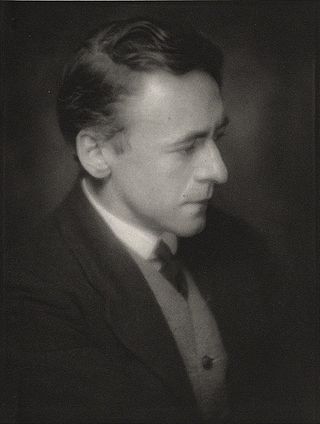
Sir Arnold Edward Trevor Bax was an English composer, poet, and author. His prolific output includes songs, choral music, chamber pieces, and solo piano works, but he is best known for his orchestral music. In addition to a series of symphonic poems, he wrote seven symphonies and was for a time widely regarded as the leading British symphonist.
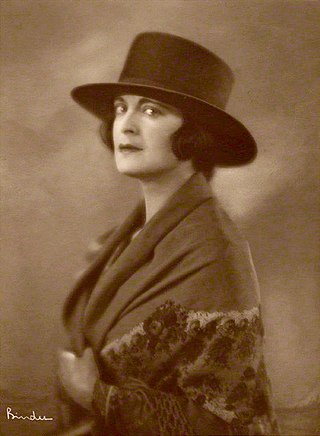
Harriet Pearl Alice Cohen CBE was a British pianist.

Dame Mary Louise Webster,, known professionally as May Whitty and later, for her charity work, Dame May Whitty, was an English stage and film actress. She was one of the first two women entertainers to become a Dame. The British actors' union Equity was established in her home in 1930.
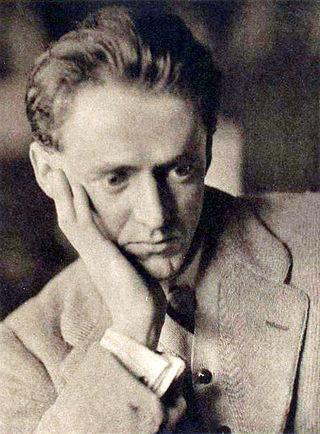
Clifford Lea Bax was a versatile English writer, known particularly as a playwright, a journalist, critic and editor, and a poet, lyricist and hymn writer. He also was a translator. The composer Arnold Bax was his brother, and set some of his words to music.

Una O'Connor was an Irish-born American actress who worked extensively in theatre before becoming a character actress in film and in television. She often portrayed comical wives, housekeepers and servants. In 2020, she was listed at number 19 on The Irish Times list of Ireland's greatest film actors.

Kylie Bax is a New Zealand-based model and actress. She has appeared on international magazine covers, including Vogue and Marie Claire. During her twenties, Bax had supporting roles in action and comedy films.
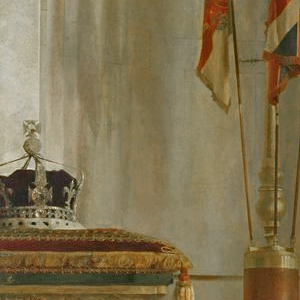
The Crown of Queen Elizabeth The Queen Mother, also known as the Queen Mother's Crown, is the crown made for Queen Elizabeth to wear at her coronation in 1937 and State Openings of Parliament during the reign of her husband, King George VI. The crown was made by Garrard & Co., the Crown Jeweller at the time, and is modelled partly on the design of the Crown of Queen Mary, though it differs by having four half-arches instead of the eight that Queen Mary's Crown originally had. As with Queen Mary's Crown, its arches are detachable at the crosses pattée, allowing it to be worn as a circlet or open crown. It is the only crown for a British king or queen to be made of platinum.

The Crown of Queen Mary is a consort crown that was made in 1911 for the coronation of British queen Mary of Teck. Mary thereafter wore it on occasion in circlet form. It is part of the Crown Jewels of the United Kingdom. It was used again, in a slightly altered form, at the coronation of Queen Camilla on 6 May 2023.

Evening gloves or opera gloves are a type of formal glove that reaches beyond the elbow worn by women.
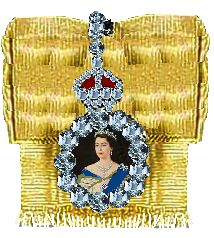
The Royal Family Order of Elizabeth II is an honour which was bestowed on female members of the British royal family by Queen Elizabeth II. The order is worn by recipients on formal occasions.

Queen Elizabeth II owned a historic collection of jewels – some as monarch and others as a private individual. They are separate from the gems and jewels of the Royal Collection, and from the coronation and state regalia that make up the Crown Jewels.
The Stratton String Quartet was a British musical ensemble active during the 1930s and 1940s. They were specially associated with the performance of British music, of which they gave numerous premieres, and were a prominent feature in the wartime calendar of concerts at the National Gallery. After the War the group was re-founded as the Aeolian Quartet.

Charles James Kennedy Osborne Scott was an English organist and choral conductor who played an important part in developing the performance of choral and polyphonic music in England, especially of early and modern English music.
The Happy Forest is a symphonic poem by Arnold Bax. It was composed as a piano piece in 1914, and orchestrated in 1922. The inspiration for the work was a story of the same name by Herbert Farjeon, a rural idyll with mythical figures delighting the observer. Bax's treatment is an evocation of the mood of the story rather than a programmatic depiction of the incidents.

A statue of Queen Anne is installed in the forecourt outside the west front of St Paul's Cathedral, in London, United Kingdom. It became a Grade II listed building in 1972.

Caroline Gertrude Hatchard was a British lyric soprano, musical theatre and opera singer of the 20th-century who was the first English-born and trained soprano to be engaged by the Royal Opera House in Covent Garden where she played Sophie in the British premiere of Strauss's Der Rosenkavalier on 29 January 1913 with Thomas Beecham conducting.
Christopher Whelen was an English composer, conductor and playwright, best known for his radio and television operas. Because much of his work was written for specific theatre productions in the 1950s, or directly for broadcast in the 1960s to the 1980s, little of it survives today, though a number of his scores and related papers have been deposited in the British Library.

Blanche Eleanor Stocker was a British actress and singer, who played minor roles in a string of Edwardian musical comedies and other stage works early in the 20th century. She also played a film role.
References
- ↑ Wearing p.220